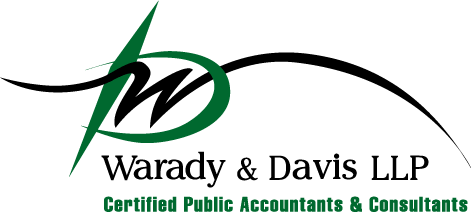The economic fallout from the coronavirus (COVID-19) pandemic has forced business owners to reevaluate their operations and make difficult decisions. One place to look for the information you need to make rational, reasonable moves is your financial statements. Under U.S. Generally Accepted Accounting Principles, these typically comprise a statement of cash flows, a balance sheet and an income statement.
Cash flow
A statement of cash flows should be organized into three sections: cash flows from operating, financing and investing activities. Ideally, a company generates enough cash from operations to cover its expenses.
For many businesses, the COVID-19 pandemic has caused revenue to drop precipitously without a proportionate decrease in certain (fixed) operating expenses. Keep a close eye on whether you’re reaching a danger point. To generate additional cash flow, you may need to borrow money — consider a Small Business Administration loan, if you’re eligible.
Assets and liabilities
Your balance sheet tallies your company’s assets, liabilities and net worth — creating a snapshot of its financial health on the statement date. Assets are typically listed in order of liquidity. Current assets (such as accounts receivable) are expected to be converted into cash within a year, while long-term assets (such as your plant and equipment) will be used to generate revenue beyond the next 12 months.
Similarly, liabilities are listed in order of maturity. Current liabilities (such as accounts payable) come due within a year, while long-term liabilities are payment obligations that extend beyond the current year.
As its name indicates, the balance sheet must balance — that is, assets must equal liabilities plus net worth. Net worth is the extent to which the book value of assets exceeds liabilities. In times of distress, certain assets (such as receivables, financial assets, pension funds and inventory) may need to be written off, and intangibles (such as brands and goodwill) may become impaired. These changes may cause the book value of a company’s net worth to be negative, suggesting that the business is insolvent. Other red flags include current assets growing faster than sales, and a deteriorating ratio of current assets to current liabilities.
Income and overhead
An income statement shows revenue and expenses over the accounting period. Revenue has fallen for many businesses as the result of social distancing during the COVID-19 outbreak. Fortunately, certain variable expenses — such as materials and direct labor costs — have also fallen.
Unfortunately, most fixed expenses — such as rent, equipment leasing fees, advertising, insurance premiums and manager salaries — are ongoing. Review costs that are categorized on the income statements as overhead and sales, general and administrative expenses. Consider whether you can scale back these items, renegotiate them or convert them into variable costs over the long run.
For example, you might return a leased copier that isn’t being used, decrease your insurance coverage or rely more on independent contractors, rather than employees, for certain tasks.
Sudden changes
Your existing financial statements may not account for the sudden changes inflicted upon businesses worldwide by COVID-19. Warady & Davis LLP can assist you in evaluating them, gleaning insightful data using updated numbers, and generating new ones going forward.
We Are Here to Help
Please visit the Warady & Davis LLP COVID-19 Resource Center for a wealth of information on stimulus assistance, new legislation and much more. This information is updated daily. This is a rapidly evolving situation so please do not hesitate to reach out to us with any questions or concerns at 847-267-9600.
Legal Notice: The materials communicated in this transmission are for informational purposes only and not for the purpose of providing accounting, legal or investment advice. You should contact your accountant or advisor to obtain advice with respect to any particular issue or problem. Use of and access to this Web site or any of the e-mail links contained within the site do not create an accountant-client relationship between Warady & Davis and the user or browser. You should not act upon any such information without first seeking qualified professional counsel on your specific matter. Any accounting, business or tax advice contained in this communication is not a substitute for a formal opinion, nor is it sufficient to avoid tax-related penalties. If desired, Warady & Davis would be pleased to perform the requisite research and provide you with a detailed written analysis. Such an engagement may be the subject of a separate engagement letter that would define the scope and limits of the desired consultation services. © 2020 All Rights Reserved.
